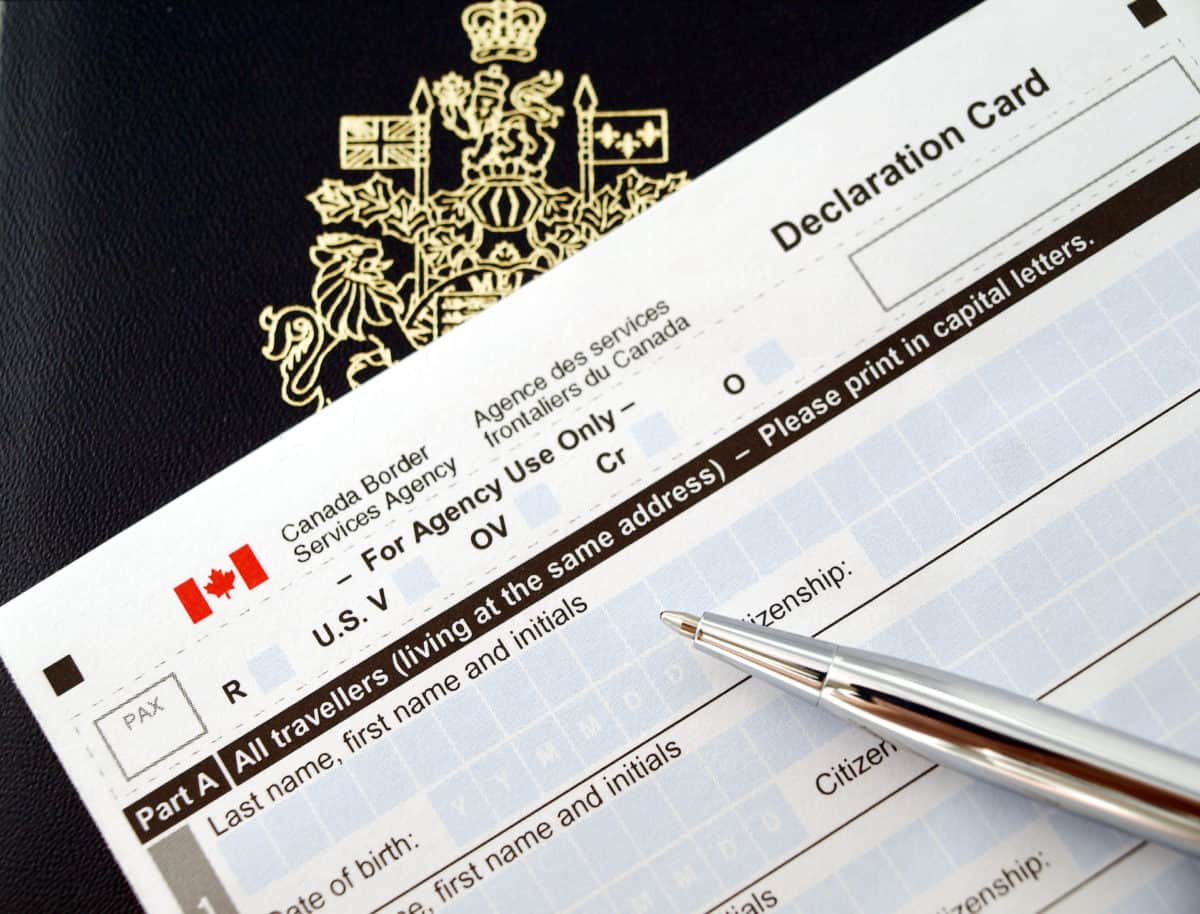Canada is expecting a ‘significant surge’ in immigration applications as coronavirus restrictions ease, putting a ‘tremendous demand’ on government resources, federal officials say.
Immigration, Refugees and Citizenship Canada (IRCC) must move to overhaul how it processes applications in order to cope with the rush, according to a new tender document.
In preparation for the post-pandemic situation, IRCC must consider a range of updates to processes including paper applications, immigration interviews and a computer system overhaul.
Only then will it be ready to cope with the expected increase in applications.
The ‘urgent’ tender request says: « IRCC needs to act quickly to develop (i) updated and new strategies, and (ii) processes and digital systems to cope with the rapid change it is undergoing. »
It adds: « When travel restrictions begin to ease, a significant surge of applications and support requirements is anticipated, putting tremendous demand on our global operations and supporting branches.”
Read More
Canada Immigration Drops 78% as April Sees Just 4,140 New Permanent Residents
Explained: Canada’s New Exemption for Family Members of Citizens and Permanent Residents
Canada-U.S. Border Closure Highly Likely to be Extended into July: Report
Immigration to Canada has slowed significantly due to travel restrictions in place due to COVID-19.
Only candidates with permanent residence applications approved before March 18 are currently allowed to travel.
In April, government figures show Canada recorded just 4,140 permanent resident admissions compared to 25,930 in February, the last month immigration was unaffected by restrictions.

It means Canada’s pre-coronavirus plan to welcome 341,000 new permanent residents in 2020 is unlikely to be fulfilled, although some of the numbers could be made up as restrictions are eased later in the year.
As of June 12, 2020, travel restrictions remain in place, meaning May figures for new permanent residents are likely to be similar to April.
Canada restricted arrivals to all but essential travel during March, including closing the border with the U.S.
Exemptions were introduced on March 26 for:
- Seasonal agricultural workers, fish/seafood workers, caregivers and all other temporary foreign workers.
- International students who held a valid study permit, or had been approved for a study permit, when the travel restrictions took effect on March 18, 2020.
- Permanent resident applicants who had been approved for permanent residence before the travel restrictions were announced on March 18, 2020, but who had not yet travelled to Canada.
14-Day Self-Quarantine Plan
Anyone entering Canada from the US or any other country is required to self-quarantine for a period of 14 days upon entry.
Travellers are also required to present a quarantine plan, with details of where they will stay, how they will get groceries and medication and whether they will be staying with vulnerable people.
Immigration Draws Continue
Federal and provincial authorities have continued to conduct immigration draws since the pandemic took hold, but the dramatic impact on permanent resident arrivals was inevitable.
Canada’s federal Express Entry system has switched to program-specific draws for provincial nominees and the Canadian Experience Class, with candidates in both categories more likely to be already in Canada.
Since March 18, Canada has conducted 14 draws, seven targeting PNP candidates and seven targeting CEC candidates. It has issued 27,320 ITAs, including 3,256 to PNP candidates and 20,064 to CEC candidates.
In terms of Express Entry invitation numbers, Canada remains ahead of both 2018 and 2019, having issued 46,000 ITAs so far in 2020.






